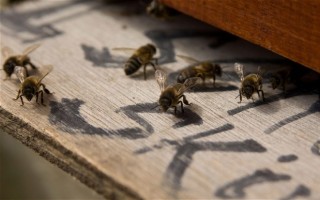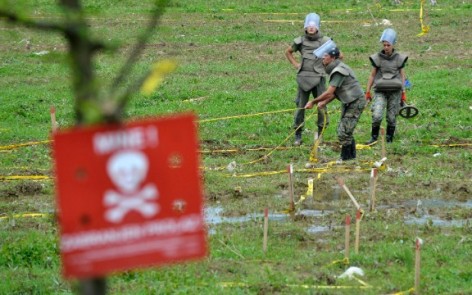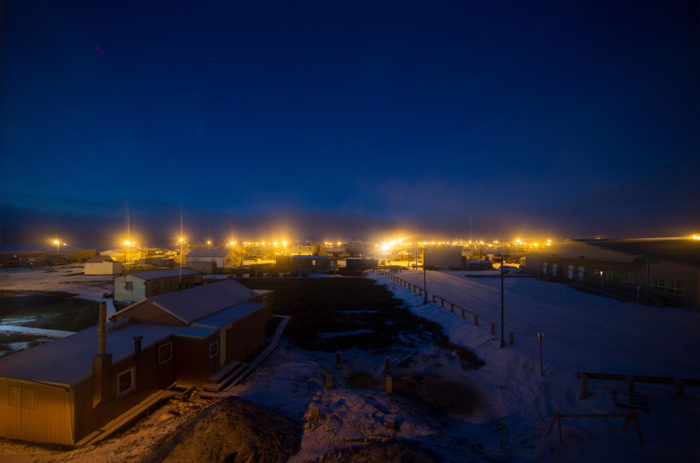Hilltop home denied insurance because of ‘flood risk’
Eric Brisley, 85, occupies a house in England, 250ft up a hillside and 750ft from the sea, yet he has been denied home insurance because of the risk of flooding.
The story, reported in [England’s] The Plymouth Herald, tells of how the retired grandfather of three, who already had home insurance with another firm, went into a Lloyds bank in Knightsbridge for an unrelated appointment, and was offered a quote for home insurance.

Eric Brisley lives on a 250ft high hillside overlooking North Sands beach in Salcombe, Devon (England).
“I was quite happy with my present insurer but the [Lloyds] assistant said she thought she could do better,” Mr Brisley said. “She put in my particulars into the computer and began to look very worried.
“[She] went off to make a phone call and when she came back she said there was something wrong with the system and would phone me when she had sorted it out.
“But she phoned me to say unfortunately as my house was liable to flooding she couldn’t insure me.”
Mr Brisley said that he was “astonished” to be refused insurance, as his home in Salcombe, Devon, is situated 250ft above sea level and 750ft from the water. “There’s no possibility of getting flooded either from streams or from the sea. I don’t think even the biggest tsunami would affect us up here,” he said.
Lloyds said that as the bank assesses risk on a postcode basis, Mr Brisley’s postcode was coastal and on a very significant slope, hence its decision to deny cover. However, it added that the bank was working towards a system that would allow it to underwrite based on an individual’s house level, to prevent this type of issue occuring again.
Good catch: man saves baby after fall from second floor window
A man successfully caught a one-year-old baby who fell from a second-story window on Sunday in a south China, according to local reports.
The child who it was believed went looking for his mother, climbed onto the window ledge during a heavy thunderstorm in Xiaolan Town, Zhongshan City of Guangdong Province.
In the video a local man, identified as only as Mr Li, can be seen hurrying across the road and holding out his arms to catch the falling child.
Another man Mr Hu also rushed to the site to join in the rescue, along with other nearby residents who put several pieces of cardboard and a sofa on the ground under the window in the hope of breaking the child’s fall
“I didn’t think too much at the time. I was just afraid of failing to catch him ” said Mr Li.
Watch a video of the incident:
‘Sniffer bees’ reared to detect landmines in Balkans
Biologists in France and Croatia have successfully reared “sniffer bees” which they claim could swiftly pinpoint mines and explosives that remain hidden underground in the Balkans.

Biologists in France and Croatia have successfully reared “sniffer bees” which could be able to find underground landmines in Bosnia (Photo: ALAMY)
The insects are said to have an olfactory sense as strong as sniffer dogs, and it is hoped they will speed up urgent operations to clear thousands of landmines left over from the region’s 1990s war that have been disturbed in the Balkans’ worst flooding since record keeping began.
The floods and landslides raised fears about the estimated million land mines planted during Bosnia’s 1992-95 war. Nearly 120,000 of the unexploded devices remain in more than 9,400 carefully marked minefields. But the weather toppled warning signs and, in many cases, dislodged the mines themselves.
“We knew that bees were sensitive to certain smells, like geraniums or nerol, for example. The challenge was to get them to learn to spot TNT,” said Yves Le Conte, director of the bee and environment unit at agricultural research body INRA in Avignon, southern France.
Four years ago, he was contacted by Croat scientist Nikola Kesic at the University of Zagreb who was concerned about the risks to farmers of unexploded landmines and anti-tank mines.

Bosnian soldiers repair land-mine warning signs in fields near the banks of the Bosnia River, which flooded near the town of Visoko, Bosnia-Herzegovina
In experiments, Mr Le Conte hid TNT under sand covered with sugar syrup to attract the bees. This encouraged the insects to prefer pots with TNT in them to ones without.
“I was amazed at the bee’s reaction,” Mr Le Conte told France Télévisions.
The bees soon lose interest when they realise there is no sugar to be found, so have to be “re-educated” with sugar-coated TNT roughly every half an hour.
The scientists followed the bees’ movements in minefields covered with vegetation via heat-sensitive infra-red photographs taken every ten seconds.
The spots where they landed were then carefully searched for mines.
Next month, Mr Kesic, who has received European funding, will conduct open field experiments “with an entire colony of around 30,000 bees”.
According to his observations, the process is even more effective when it comes to detecting DNT explosives.
“We now hope to convince bomb disposal experts with our results, said Mr Kesic, confident he would overcome their scepticism with this “very simple and very rapid method”.
A similar method of training bees to associate an odor with a reward has also been developed by British company Inscentinel Ltd. “Bees are at least as good as sniffer dogs but are cheaper and faster to train, and available in much larger numbers. It is dependent on the specific odor, but bees can detect some odors that are present in parts per trillion – that’s equivalent to detecting a grain of salt in an Olympic-sized swimming pool,” said Dr Rebecca Nesbit, a research scientist at Inscentinel.
Some 44 people have died in the Balkan floods, which have triggered more than 3,000 landslides and laid waste to entire towns and villages. On Wednesday, May 21st, a person was killed by a landmine in northern Bosnia.
From London’s Daily Telegraph.




